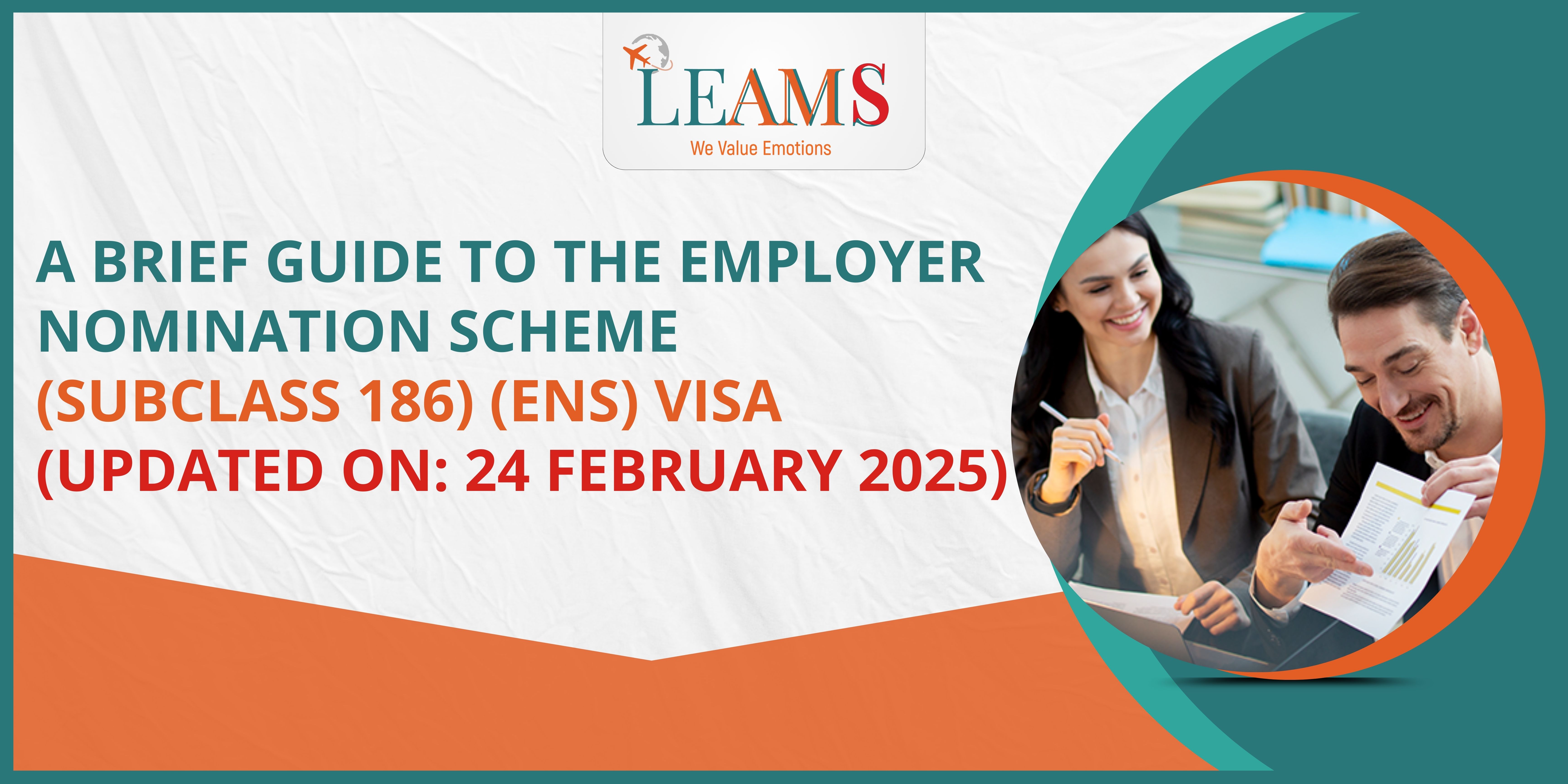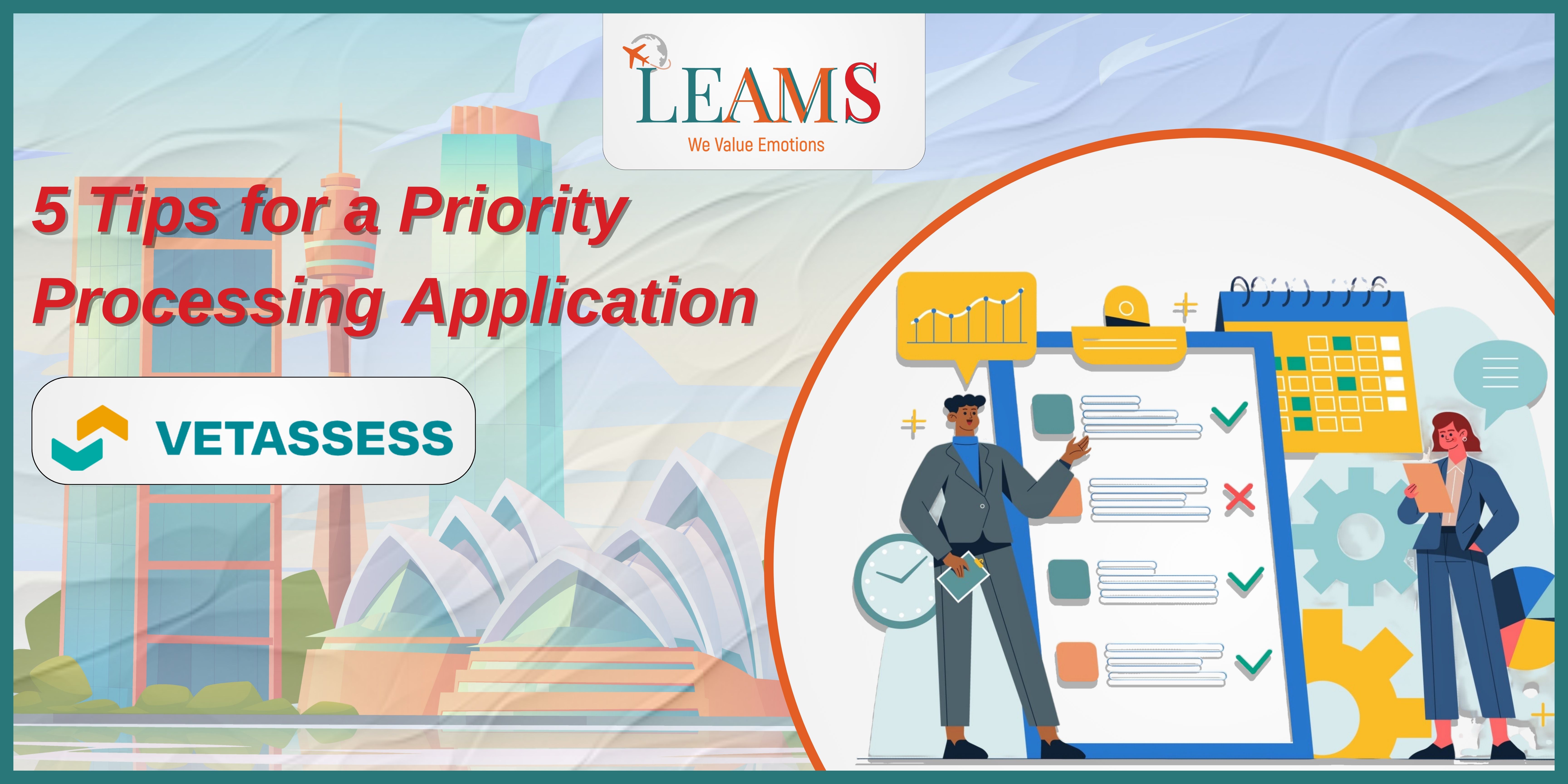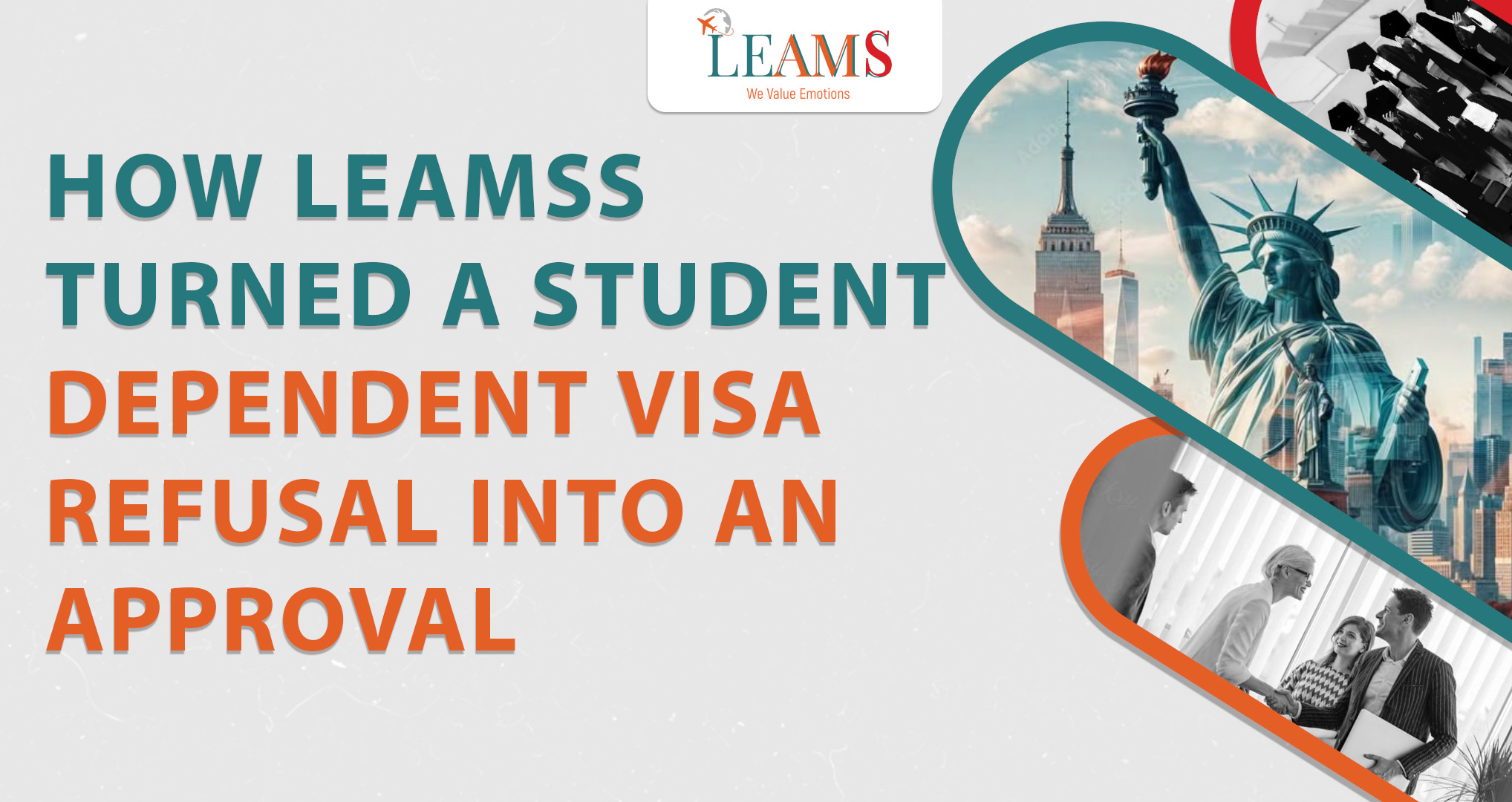A Brief Guide to the Employer Nomination Scheme (Subclass 186) (ENS) Visa (Updated on: 24 February 2025)
A Brief Guide to the Employer Nomination Scheme (Subclass 186)
(ENS) Visa
(Updated on: 24 February 2025)
The Employer Nomination Scheme (Subclass 186) (ENS) visa allows businesses
to sponsor foreign workers for permanent residency. Nominated workers can be
either temporary residents already working in Australia or individuals residing
and working outside Australia.
A successful ENS application requires both a nomination and a visa
application. For further details about this program, please refer to our dedicated
page.
Eligibility Requirements for
an ENS Nomination
To qualify for a valid nomination, the following conditions must be met:
1. The
business must be actively and lawfully operating in Australia.
2. There
must be a genuine need for the visa applicant in the nominated position under
the employer’s direct control.
3. The
business must have the capacity to employ the individual for at least two
years.
4. The
position must be full-time and available for a minimum of two years from the
visa grant date.
5. The
position must offer a salary of at least:
o
AUD 73,150 per annum, and
o
At least the annual market salary rate for the
nominated occupation.
6. The
position must provide employment conditions that are no worse than those for
Australian workers in equivalent roles.
Eligibility Requirements for
an ENS Visa
There are three streams under the ENS visa:
·
Temporary Residence
Transition (TRT)
·
Labour Agreement
·
Direct Entry (DE)
Each stream has distinct criteria, making it essential to apply under the
appropriate category to maximize approval chances.
Temporary Residence
Transition (TRT) Stream
General requirements for this stream:
1. Must
have held a 457 or 482 visa and worked full-time in the nominated position (or
a closely related one) in Australia for at least two years within the past
three years.
2. Must
be genuinely performing the tasks of the nominated position.
3. Must
have competent English proficiency.
4. Must
be under 45 years of age.
5. Must
meet any mandatory licensing, registration, or professional membership
requirements.
6. Must
satisfy the relevant health and character criteria.
Direct Entry (DE) Stream
DE applicants must have an occupation listed on the relevant occupation
list. Instead of proving they have worked on a 457 or 482 visa for two years,
they must:
1. Have
their skills assessed as suitable for the occupation by the relevant skills
assessing authority.
2. Have
at least three years of post-qualification experience in the relevant
occupation.
3. Have
competent English proficiency.
4. Be
under 45 years of age.
5. Meet
any mandatory licensing, registration, or professional membership requirements.
6. Satisfy
the relevant health and character criteria.
Labour Agreement Stream
This stream is for applicants working for an employer with a labour
agreement in place. These agreements are industry-specific and negotiated with
the Department of Home Affairs. For detailed guidance, please contact a LEAMSS
representative.
Can Family Members Be
Included?
ENS visas may include immediate family members, defined as:
·
A de facto partner or spouse (same or opposite
sex), with proof of a genuine relationship and cohabitation.
·
Dependent children or stepchildren under 18
years of age.
·
Unmarried adult children aged 18 to 23 who are
financially dependent on their parents.
All family members must meet health and character requirements.
If you are already in Australia on an ENS visa and wish to bring family
members, you must apply for a separate family visa. Various temporary and
permanent options are available. Book a consultation to determine the best
pathway for your situation.
Do I Need to Continue
Working in My Occupation?
Once granted, the ENS visa provides permanent residency with no employment
conditions. This means visa holders are not required to maintain employment in
the same occupation after obtaining their visa.
ENS 186 Visa Application
Process
|
Step |
Process |
Timeline |
|
1 |
An Australian employer agrees to sponsor your visa application. |
Variable |
|
2 |
Employer collects relevant documents and submits a nomination
application. |
~1 month from initiation (LMT requirements apply) |
|
3 |
Employee collects relevant documents and submits a visa application. |
Can be done simultaneously with Step 2 |
|
4 |
Nomination and visa application are lodged with the Department of
Home Affairs. |
Usually within 1-2 days of Step 2 |
|
5 |
Waiting period for a decision on the nomination and visa application. |
~12 months |
|
6 |
Visa grant. The visa holder should work for the sponsoring employer
for at least two years post-approval. |
2 years |
Final Thoughts
The ENS 186 visa application process involves multiple steps, and meeting
all requirements is crucial to avoid costly refusals. LEAMSS has a team of
experienced migration professionals ready to assist in streamlining your
application and increasing your chances of success.
For more information or personalized consultation, contact LEAMSS today.






